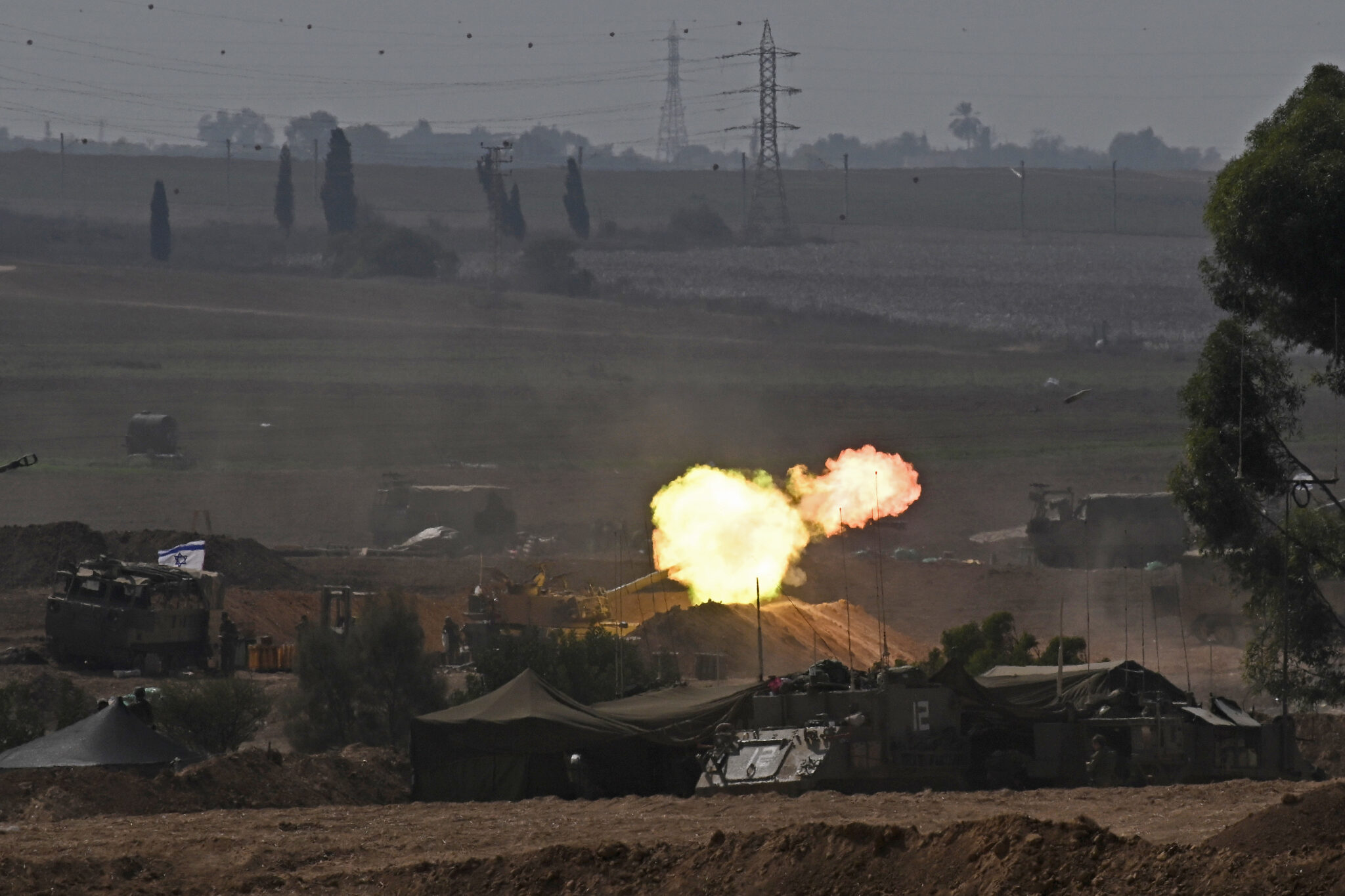Why Hamas’s Attack Will Change Israel As We Know It
OPINION — Many analysts of global affairs play fast and loose with the term “game changer.” My somewhat curmudgeonly analysis of events like UAE-Israel normalization or the assassination of Iran’s Quds Force Chief Qassem Soleimani argued that the strategic environment, from Israel’s perspective at least, would remain largely unchanged after those events. What happened in Israel on October 7, 2023 is different.
What makes the brutal Hamas rampage in Israel distinct from other events is that is has fundamentally altered Jerusalem’s perception. Before UAE-Israel normalization, under-the-table cooperation had existed between the two countries for decades and the 1978 Egypt-Israel peace accord after decades of conflict was obviously a more significant shift in dynamics. In terms of the assassination of Soleimani, in years past the U.S. had assassinated many dangerous leaders of terror organizations and Israel had taken out Iranian nuclear scientists; the U.S.’s 2020 UAV strike in Baghdad may have been the more easily attributable and the target was a higher profile official than usual, but this was in a sense “more of the same.” Hamas’s recent terror attack which unleashed unspeakable horrors on the Israeli population, including burning people alive, decapitating infants, and other atrocities, changed how Israelis see their Gazan neighbors.
Previously, Israelis viewed Hamas as two things at once. While it was certainly a radical jihadist terror group with a dangerous rocket arsenal, it also appeared to be a force for restraint in the Gaza Strip. When Palestinian Islamic Jihad, another Gaza-based terror organization associated with the “axis of resistance,” sought to stir up conflict with Israel, Hamas often remained passive or at times even actively prevented from them from doing so. The thinking was, Hamas ruled Gaza and therefore had an interest in seeing the enclave avoid humanitarian catastrophe – Israel could use carrots and sticks to ensure that the group did not take steps that would endanger Israeli national security. For more than a decade this appeared to work well, with only minor flareups every few years that stayed well below the threshold of “all-out war.”
Given the slaughter that took place on October 7th, which was the single deadliest day in Israel’s history, Jerusalem’s perception of Hamas as a “useful irritant” changed. The death toll and the brutality stoked an existential angst in the country that will leave Jerusalem’s decisionmakers with little choice but to decimate the group and level much of Gaza. Initial news reports, including from Al-Monitor, indicate that the terrorist group did not expect the attacks to reach the proportions that they did – and now they will suffer the consequences of their “success.” It is existentially important for Jerusalem to leave Gaza and the rest of the region (especially Lebanese Hezbollah) with a sense that Hamas and the people under its rule deeply regret what was done. The tragedy of this is that Hamas’s defensive tactics include melting back into it the millions of human shields under its control in the Gaza Strip.
Cipher Brief Subscriber+Members enjoy unlimited access to Cipher Brief content, including analysis with experts, private virtual briefings with experts, the M-F Open Source Report and the weekly Dead Drop – an insider look at the latest gossip in the national security space. It pays to be a Subscriber+Member. Upgrade your access today.
Within Israel, the country has largely set aside its political divisions but the lack of serious leadership from Prime Minister Netanyahu’s government is palpable. Netanyahu has been largely absent from the public eye and his speeches have been uninspired when compared with that of former Prime Minister Naftali Bennet, who even showed up to reserve duty. Netanyahu’s ministers who contributed significantly to the internal strife over the past year have been largely absent or marginalized, but even without the rabblerousers attacking his political opponents the Prime Minister has failed to bring in all major centrist parties into his orbit to form a national unity government which disposes of the far-right extremists. Reforming the coalition from a collection of far-right of provocateurs into a collection of centrist experienced professionals would be especially useful in sending the message to Hamas that their moment of opportunity to strike a divided Israel has since passed. Netanyahu, however, is unwilling to part ways with the far-right members of his coalition and so only the State Camp Party has joined his emergency government, while the country’s second largest party Yesh Atid has refused. Reportedly, Netanyahu is concerned that doing what is necessary to form a national unity government during the current crisis could leave him without a coalition after the shooting stops in a few months.
It’s not just for the President anymore. Are you getting your daily national security briefing? Subscriber+Members have exclusive access to the Open Source Collection Daily Brief, keeping you up to date on global events impacting national security. It pays to be a Subscriber+Member.
The dynamism of Israeli society has more than compensated for the political echelon’s shortcomings. The number of soldiers who showed up for reserve duty in the first 48 hours, at 300,000, is 150% of the number who have been called up. The networks of the protest movement, which previously served to organize demonstrations against the judicial reform, were repurposed to collect food and equipment to ensure that Israel’s soldiers have what they need and more. Private citizens, including former generals, took heroic actions of their own accord in order to save countless individuals early on in the fighting.
Israel is now set to deliver a punishing blow to Hamas, but whether fighting will spread to Lebanon, Syria, Iraq, or Yemen, is difficult to foresee. For a moment, all the damage Netanyahu has done to the country’s internal cohesion and image abroad has been set aside – but this should hardly be mistaken for an extension of his political lifespan. Once the fighting ends, Israel will likely toss out its flawed strategy for the Palestinian arena based on the previous conception of Hamas along with the premier who was seduced into complacency by it.
The Cipher Brief is committed to publishing a range of perspectives on national security issues submitted by deeply experienced national security professionals.
Opinions expressed are those of the author and do not represent the views or opinions of The Cipher Brief.
Have a perspective to share based on your experience in the national security field? Send it to [email protected] for publication consideration.
Read more expert-driven national security insights, perspective and analysis in The Cipher Brief
Check out our Latest News and Follow us at Facebook
Original Source







